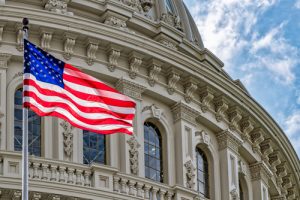
The president of the United States would be granted certain authorities to combat economic coercion by foreign adversaries under a bipartisan bill sponsored on Wednesday by U.S. Sen. Todd Young (R-IN).
“Some foreign adversaries think they can drive a wedge between Western allies by using economic intimidation or by harming economies through opaque, informal actions,” Sen. Young said. “These threats and grabs for power cannot go unchecked.”
The Countering Economic Coercion Act of 2022, S. 4514, which is cosponsored by U.S. Sen. Chris Coons (D-DE), would direct the president to coordinate the U.S. response with other allies to provide economic relief and demonstrate broad resolve against economic coercion, according to a bill summary provided by Sen. Young’s staff.
“Our bipartisan bill will provide the flexibility to help our foreign partners on an expedited basis when they are targeted for standing up to authoritarian regimes,” said Sen. Young. “By supporting our partners under threat, we protect America’s own national security interests.”
Additionally, S. 4514 would provide the president with specific tools to offer swift and effective economic support to foreign partners targeted by economic coercion, including authorities to decrease duties or modify quotas on imports from the foreign partner to make up for lost exports to other nations due to coercive actions, the summary says.
The president could also expedite export licensing decisions and regulatory processes to facilitate trade; seek appropriations to support foreign aid, export financing and sovereign loan guarantees; and waive certain policy requirements to facilitate export financing, according to the summary.
“Providing targeted support to allies and partners struggling with the impacts of economic coercion will not only help bolster their own resilience against these actions, but it will also help safeguard American economic and security interests,” said Sen. Coons.
The bill has been referred for consideration to the U.S. Senate Foreign Relations Committee.



